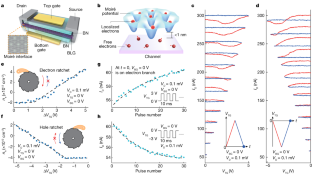2023-12-20 プリンストン大学

Researchers have harnessed the power of large language models to help them answer questions about fusion energy research. (Illustration by Bumper DeJesus; text courtesy of the researchers).
◆このモデルは、ChatGPT、Bard、LLaMAなどのツールの背後にある大規模な言語モデルを活用しており、ユーザーには類似の特性を持つ以前の実験を特定し、デバイスの制御システムに関する情報を提供し、フュージョン反応器やプラズマ物理学に関する質問に迅速に回答することができます。
<関連情報>
- https://engineering.princeton.edu/news/2023/12/20/leveraging-language-models-fusion-energy-research
- https://openreview.net/forum?id=yGVChrbJ4E
核融合炉の運転コパイロットとしてのLLMを目指して Towards LLMs as Operational Copilots for Fusion Reactors
Viraj Mehta, Joseph Abbate, Allen Wang, Andrew Rothstein, Ian Char, Jeff Schneider, Egemen Kolemen, Cristina Rea, Darren Garnier
NeurIPS 2023 AI for Science Workshop Published: 28 Oct 2023
Abstract
The tokamak is one of the most promising approaches for achieving nuclear fusion as an energy source. As such, many tokamaks have been built with rich experimental histories and datasets. While the quantitative data generated by tokamaks is invaluable, tokamaks also generate another, often underutilized data stream: text logs written by experimental operators. In this work, we leverage these extensive text logs by employing Retrieval-Augmented Generation (RAG) with state-of-the-art large language models (LLMs) to create a prototype “copilot”. Instances of this copilot were created using text logs from the fusion experiments DIII-D and Alcator C-Mod and deployed for researchers to use. In this paper, we report on the datasets and methodology used to create this “copilot”, along with its performance on three use cases: 1) semantic search of experiments, 2) assisting with device-specific operations, and 3) answering general tokamak questions. Although we found via a survey of researchers that for general tokamak operations questions RAG doesn’t offer a clear advantage over the base GPT-4 model, in the first two use cases, we observe clear advantages that RAG offers over base LLMs and simple keyword search.



